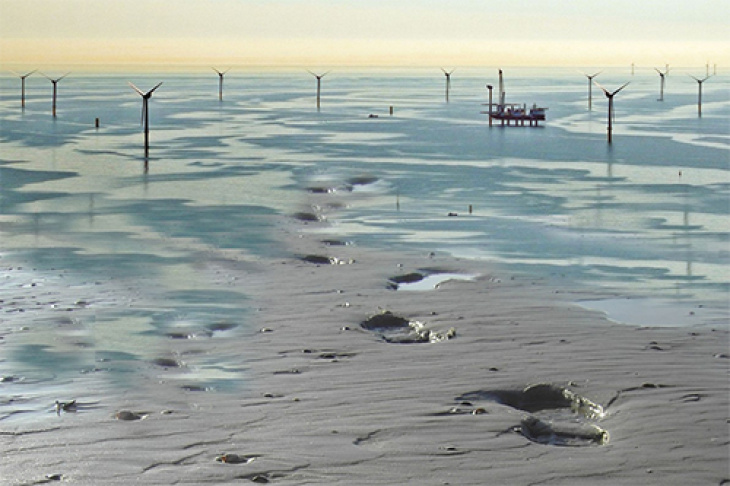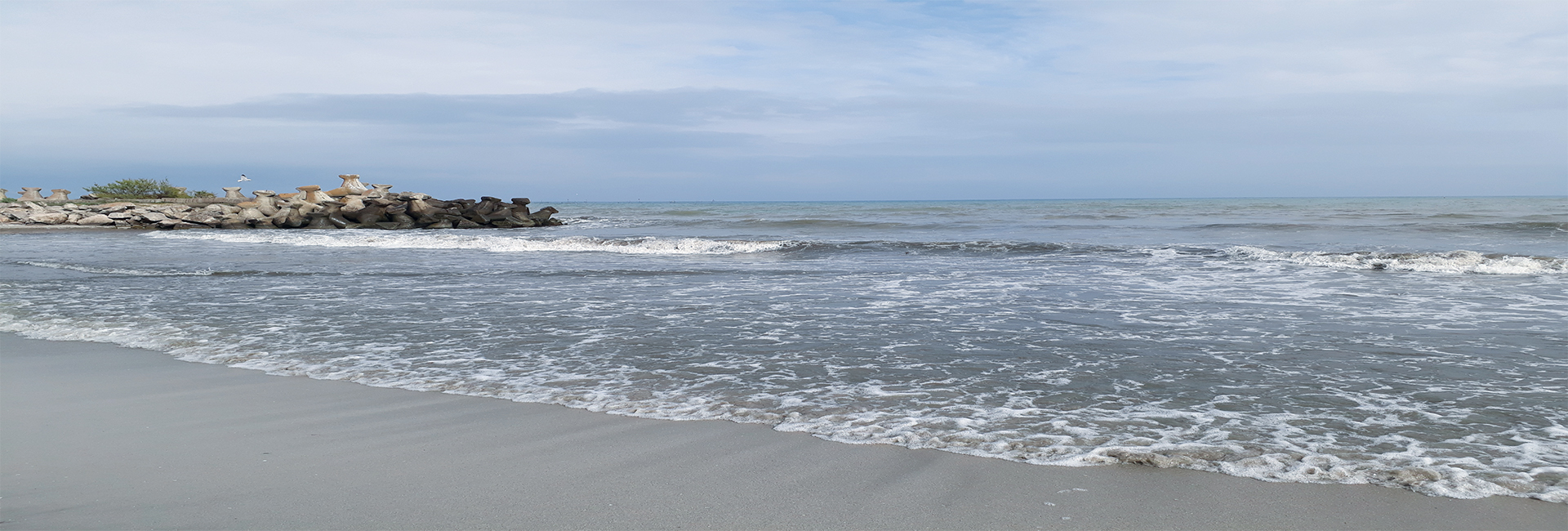Protecting the oceans and use them more sustainable
Oceans and coasts provide food, energy and raw materials. They are important transport routes and popular tourist destinations. The so-called "blue economy" is one of the world's fastest growing sectors. Due to climate change, sea level rise, warming and acidification of the oceans add to pollution and overexploitation of ecosystems. The effects can reinforce each other and lead to ecological or societal risks. In the second research mission of the Deutsche Allianz Meeresforschung (DAM), launched in early December, more than 200 scientists work together in two pilot projects and five collaborative projects to investigate the ecological, economic and social impacts of the use and pollution in order to support sustainable use of marine resources and ecosystem services.
The focus is on concepts for the welfare-oriented, prosperous and environmentally friendly use of marine and coastal areas, as well as conservation concepts for the preservation of biodiversity and natural habitats. The Bundesministerium für Bildung und Forschung (BMBF) is funding the research mission "Protection and Sustainable Use of Marine Areas" with 25 million euros over an initial phase of three years, focusing on regions around the North Sea and the Baltic Sea.
An interdisciplinary research endeavour
Different scientific disciplines and experts from the field work closely together to provide society and decision-makers in politics, industry and authorities with scientifically sound advice and socially reflected options for the design of use and protection. In doing so, the DAM research mission focuses on three topics:
- concepts to reduce the impact of anthropogenic pressures and uses on marine ecosystems and biodiversity.
- concepts for the prevention of marine pollution
- model-based investigation of future use scenarios and analysis of possible management options
The future of Coastal Seas - a societal challenge

Our future and our coasts belong to each other. Photo: Hereon/ Sabine Billerbeck and In Frings, Montage: Hereon/ Sabine Hartmann
The CoastalFutures project is coordinated by Hereon and develops assessment methods, future scenarios and action knowledge to ensure the achieve societal goals and good environmental status. The Institute of Coastal Systems - Analysis and Modeling at Helmholtz-Zentrum Hereon is developing a cross-scale model system for the North Sea and Baltic Sea and their coastal areas.
With this system, the experts are creating a virtual environment to study the effects of climate change and human use on ecosystems and to determine measures to protect marine ecosystems. The project provides an innovative decision support instrument for maritime system management and provides a the science base to support decision making for sustainable management. CoastalFutures focuses on four management sectors: offshore energy production, fisheries, coastal protection and sand management, and nutrient and pollutant inputs.
Options for intervention
"We will work across individual disciplines and develop and jointly evaluate future scenarios and effective management options together with decision makers " says Corinna Schrum, head of Hereonś institute for Coastal Systems and spokesperson for the mission. First, Hereon scientists will work with stakeholders to determine baselines and needs by discussing cause-and-effect chains. Second, researchers will work with stakeholders to develop place-based and cross-sector scenarios. Finally, they will engage with stakeholders on model-based assessments, regulatory and policy risks, and adapted options for protection measures
CoastalFutures will also provide extensive support for young scientists with numerous post-doctoral fellows, the training of eight doctoral students, and undergraduate students as part of their final research projects. The interdisciplinary focus will train the next generation of coastal scientists in complementary ways of thinking and working.
Further Information
Contact
Institute of Coastal Systems - Analysis and Modeling
Helmholtz-Zentrum Hereon
Communication and Media
Helmholtz-Zentrum Hereon
